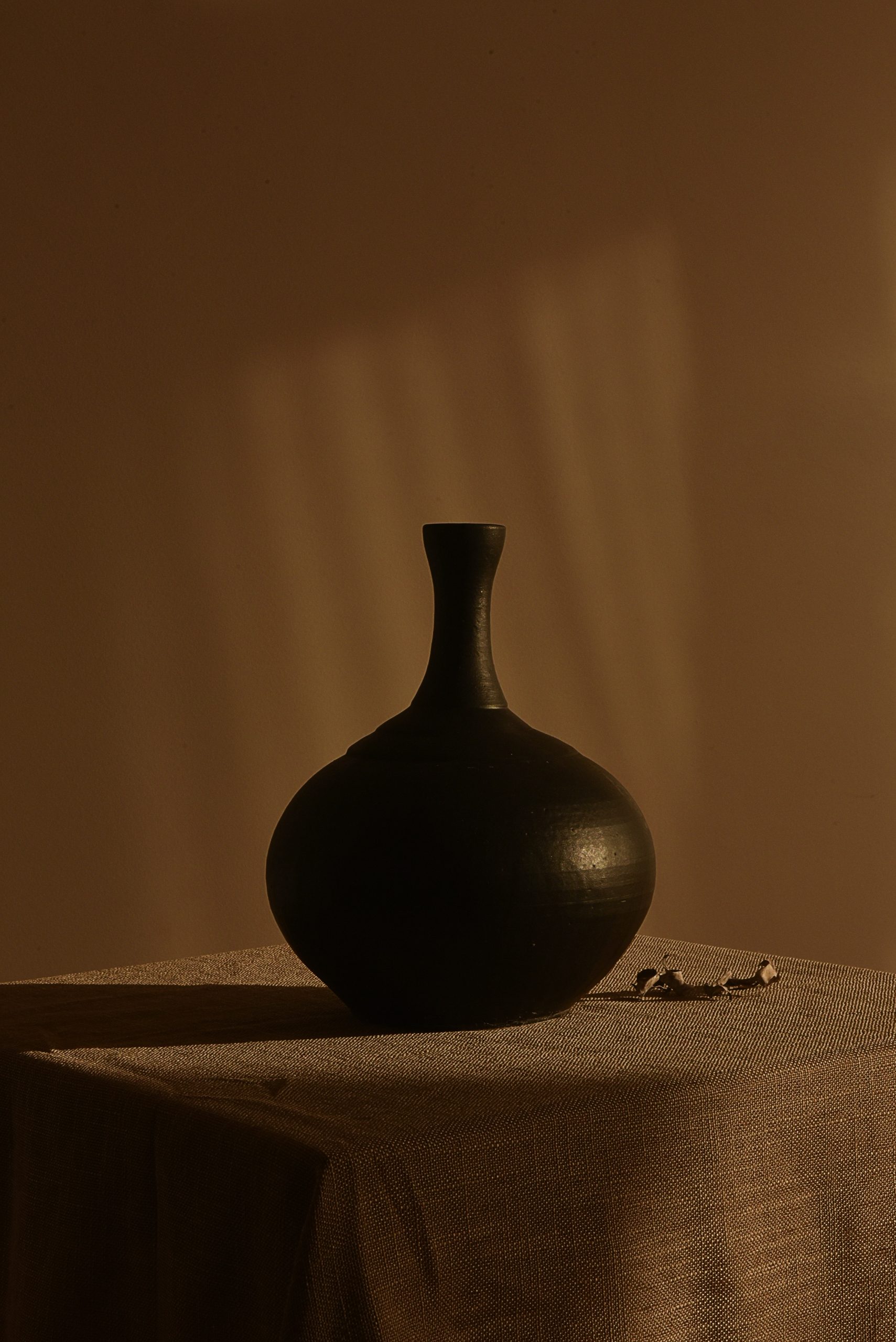The alabaster vial full of courage

By Elizabeth Prata
Now one of the Pharisees was requesting Him to eat with him, and He entered the Pharisee’s house and reclined at the table. And there was a woman in the city who was a sinner; and when she learned that He was reclining at the table in the Pharisee’s house, she brought an alabaster vial of perfume, and standing behind Him at His feet, weeping, she began to wet His feet with her tears, and she wiped them with the hair of her head, and began kissing His feet and anointing them with the perfume. Now when the Pharisee who had invited Him saw this, he said to himself, “If this man were a prophet He would know who and what sort of person this woman is who is touching Him, that she is a sinner!” (Luke 7:36-39).
In this scene we observe a few things as it gets going. First, the Pharisee had no personal interest in Jesus. None of them did (except perhaps Nicodemus). They thought him a blasphemer. No Pharisee would invite a blasphemer to his home unless he wanted to trap him and try and gain evidence to convict him. We can see this exhibited in the Pharisees’ behavior later as Jesus remarked that he had not given Jesus even the most basic courtesy as host, Jesus’ feet weren’t washed, he was not greeted with the customary kiss, nor was Jesus’ head anointed. The Pharisee had not extended minimally polite host duties toward Jesus.
Secondly, in the culture of that time, it was common for Pharisees and other town dignitaries to invite notable people to their home for a meal. They would usually leave the doors open so that interested bystanders could listen to the conversation, too. Since this is a Pharisee’s home and we know they like the chief seats and places of honor, and to be seen and revered (Matthew 23:6-7), this host Pharisee certainly would have left the doors and windows open to be seen and heard as he no doubt thought he would defeat Jesus in conversation and come out on top.
Third, when a person is called “a sinner” in a context like this, it usually means the person is seen as the bottom dreg of society. In the case of a woman being called a sinner, it likely means she was a prostitute. Those called sinners and tax-collectors were never allowed to mingle with the hoi polloi, or even the lowest. These people were the lowest of the low.
Now that the cultural background is set, let’s take a look at the sinner woman with the alabaster vial. Look at her outside the house, perhaps hiding the vial in the folds of her tunic, other bystanders edging away from her with a sneer or a snarl. She is marginalized, unloved, and unwanted. She peers through the shoulders of the gathered crowd and sees the candles and lantern inside the home and the people, including Jesus, reclining at table.
She bursts INTO the house, startling all the guests. She approaches Jesus, and sobbing audibly, wets his feet with her tears. The verse says she wipes his feet with her hair, and this is another startling event. Women of that time wore their hair up in public, never down. That her hair was loose or that she unloosed it in the company of men was shocking.
Her courage, her humility, her devotion to Christ is notable. It is the point. Jesus prophesied that this act, which was preparing him for burial (whether she knew it or not) would be talked about forever. And it is so.
What would I do in her place? Would I be too intimidated to go through with it? Would I allow myself to be edged out by abrupt elbowings and mutterings of the crowd against me? Once inside, would I falter, step back, mutter an apology, and leave? Or would I be as this woman: emotionally abandoned to her devotion and gratitude to Christ and not caring who thought what? Sobbing in public. Being abandoned to love so much that I’d appear risque by taking off my shirt to wipe his feet (even if I had a tank top underneath)?
This woman was amazing. She is a good example of devotion, giving one’s all, and humility in remembrance of our past sins and relying on Jesus for forgiveness of them.






